
XTC were an English rock band formed in Swindon in 1972. Fronted by songwriters Andy Partridge and Colin Moulding, the band gained popularity during the rise of punk and new wave in the 1970s, later playing in a variety of styles that ranged from angular guitar riffs to elaborately arranged pop. Partly because the group did not fit into contemporary trends, they achieved only sporadic commercial success in the UK and US, but attracted a considerable cult following. They have since been recognised for their influence on post-punk, Britpop and later power pop acts.

"Bohemian Rhapsody" is a song by the British rock band Queen, released as the lead single from their fourth studio album, A Night at the Opera (1975). Written by lead singer Freddie Mercury, the song is a six-minute suite, notable for its lack of a refraining chorus and consisting of several sections: an intro, a ballad segment, an operatic passage, a hard rock part and a reflective coda. It is one of the few progressive rock songs of the 1970s to achieve widespread acclaim and commercial success and appeal to a mainstream audience.

The Wall of Sound is a music production formula developed by American record producer Phil Spector at Gold Star Studios, in the 1960s, with assistance from engineer Larry Levine and the conglomerate of session musicians later known as "the Wrecking Crew". The intention was to exploit the possibilities of studio recording to create an unusually dense orchestral aesthetic that came across well through radios and jukeboxes of the era. Spector explained in 1964: "I was looking for a sound, a sound so strong that if the material was not the greatest, the sound would carry the record. It was a case of augmenting, augmenting. It all fit together like a jigsaw."
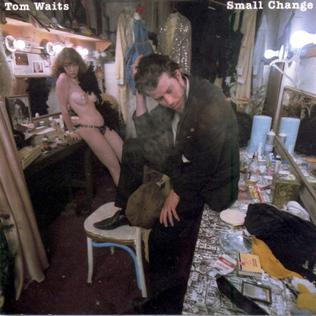
Small Change is the fourth studio album by singer and songwriter Tom Waits, released on September 21, 1976 on Asylum Records. It was recorded in July at Wally Heider's Studio 3 in Hollywood. It was successful commercially and outsold his previous albums. This resulted in Waits putting together a touring band - The Nocturnal Emissions, which consisted of Frank Vicari on tenor saxophone, FitzGerald Jenkins on bass guitar and Chip White on drums and vibraphone. The Nocturnal Emissions toured Europe and the United States extensively from October 1976 till May 1977.

"Good Vibrations" is a song by the American rock band the Beach Boys that was composed by Brian Wilson with lyrics by Mike Love. It was released as a single on October 10, 1966 and was an immediate critical and commercial hit, topping record charts in several countries including the United States and the United Kingdom. Characterized by its complex soundscapes, episodic structure and subversions of pop music formula, it was the most expensive single ever recorded. "Good Vibrations" later became widely acclaimed as one of the finest and most important works of the rock era.
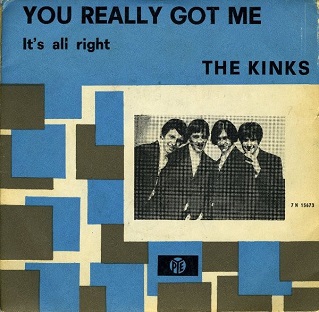
"You Really Got Me" is a song by English rock band the Kinks, written by frontman Ray Davies. The song, originally performed in a more blues-orientated style, was inspired by artists such as Lead Belly and Big Bill Broonzy. Two versions were recorded, with the second performance used for the final single. Lead guitarist Dave Davies performs the song’s famous guitar solo. Although it was long rumoured that future Led Zeppelin guitarist Jimmy Page had performed the song's guitar solo, this has been debunked by Page himself.
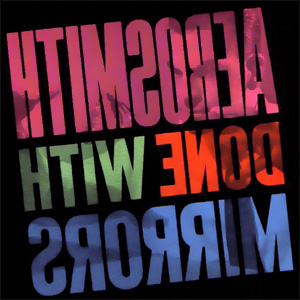
Done with Mirrors is the eighth studio album by American rock band Aerosmith, released on November 4, 1985. It marked the return to the band of guitarists Joe Perry, who left in 1979 and Brad Whitford, who departed in 1981. The band's first album on Geffen Records, it was intended as their ‘comeback’. However, the record failed to live up to commercial expectations despite positive reviews.
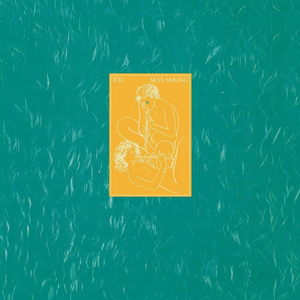
Skylarking is the ninth studio album by the English rock band XTC, released 27 October 1986 on Virgin Records. Produced by American musician Todd Rundgren, it is a loose concept album about a nonspecific cycle, such as a day, a year, the seasons, or a life. The title refers to a type of bird (skylark), as well as the Royal Navy term "skylarking", which means "fooling around". It became one of XTC's best-known albums and is generally regarded as their finest work.

Feels is the sixth studio album by American experimental pop band Animal Collective, released on October 18, 2005 by FatCat Records. The album received acclaim from music critics, and was included at number 55 on Pitchfork's list of "The 200 Best Albums of the 2000s". As of 2008, Feels sold 55,000 copies in the US.

"Jessica" is an instrumental piece by American rock band the Allman Brothers Band, released in December 1973 as the second single from the group's fourth studio album, Brothers and Sisters (1973). Written by guitarist Dickey Betts, the song is a tribute to gypsy jazz guitarist Django Reinhardt, in that it was designed to be played using only two fingers on the left hand.
"All I Wanna Do" is a song by the American rock band the Beach Boys from their 1970 album Sunflower. Written by Brian Wilson and Mike Love, the dreamlike production quality was created through liberal use of overdubbing, reverb and delay effects. It was influential to the development of lo-fi music and pioneered sounds that became associated with the shoegaze, dream pop, and chillwave music genres.

Nobody's Fools is the sixth studio album by the British rock group Slade. It was released in March 1976 and reached No. 14 in the UK. The album was produced by Chas Chandler.
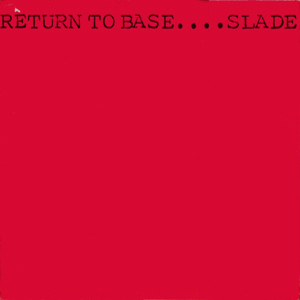
Return to Base is the eighth studio album by the British rock group Slade. It was released on 1 October 1979 by Barn Records, and did not enter any national album charts. At the time of the album's release, the band's success had waned and were receiving little fortune. Forced to play at small halls and clubs around the UK, the only income they were reliant on was Noddy Holder and Jim Lea's songwriting royalties. Their recent singles had sold poorly and they were no longer drawing in large audiences. Prior to their last-minute call up for the 1980 Reading Festival, they were on the verge of disbanding.
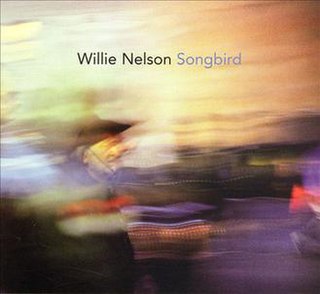
Songbird is the 55th studio album by Willie Nelson released by Lost Highway Records on October 31, 2006. It was produced by contemporary country rock musician Ryan Adams. Adams, along with his band The Cardinals, performed on the album's eleven tracks. It peaked at #87 on the Billboard 200 on November 18, 2006
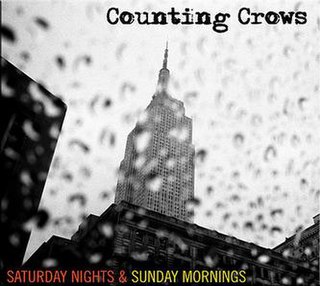
Saturday Nights & Sunday Mornings is the fifth studio album by American rock band Counting Crows, released in the United States on March 25, 2008. It is thematically divided into two sides: the rock music of Saturday Nights and the more country-influenced Sunday Mornings. Vocalist and lyricist Adam Duritz states that the album "is about really wanting to mean something and failing to do it. You want your life to mean something. You want to be somebody and then what you turn out to be is so much less than what you thought you were going to be."

Edward Sharpe and the Magnetic Zeros was an American folk rock band formed in Los Angeles, California, in 2005. The group was led by singer Alex Ebert. The band's name is based on a story Ebert wrote in his youth, about a messianic figure named Edward Sharpe. Drawing from roots rock, folk, gospel, and psychedelic music, the band's image and sound evoke the hippie movement of the 1960s and 1970s. The group's first show was played July 18, 2007, at The Troubadour in West Hollywood, California. Their first studio album, Up from Below, was released on July 7, 2009, on Community Records and featured the popular single "Home". The group released their second full-length album, Here, on May 29, 2012, and third album, Edward Sharpe and the Magnetic Zeros, on July 23, 2013. Their fourth studio album, PersonA, was released in April 2016.

Forget the Night Ahead is the second studio album by Scottish indie rock band The Twilight Sad, released by FatCat Records on 22 September 2009 in the US, and on 5 October 2009 in the UK. The album was produced by guitarist Andy MacFarlane and recorded and mixed by Paul Savage at Chem19 Studios in Hamilton, South Lanarkshire, Scotland. The album features the singles "I Became a Prostitute", "Seven Years of Letters", and "The Room".
"I Know I'm Not Wrong" is a song by Fleetwood Mac from the 1979 double LP Tusk. It was recorded as the final song of side three of the LP on 19 September 1979, written by Lindsey Buckingham, whose sparser songwriting arrangements and the influence of punk rock and new wave were the leading creative force on it and other Tusk tracks. The song was worked on for the duration of the Tusk album and took around a year to complete.
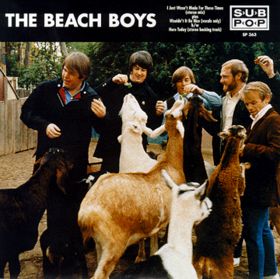
"I Just Wasn't Made for These Times" is a song by American rock band the Beach Boys from their 1966 album Pet Sounds. Written by Brian Wilson and Tony Asher, the lyrics describe the disillusionment of someone who struggles to fit into society. Musically, it is distinguished for its melodic bass guitar, layered vocals, and Electro-Theremin solo, marking the first time the instrument was used in popular music and the first time theremin-like sounds were used on a rock record.
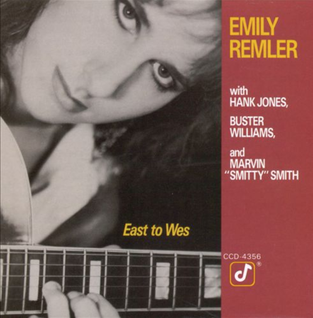
East to Wes is a studio album by the jazz guitarist Emily Remler. She was accompanied by the pianist Hank Jones, who had played on Firefly (1981), her first record, the double bass player Buster Williams and the drummer Marvin "Smitty" Smith.


















